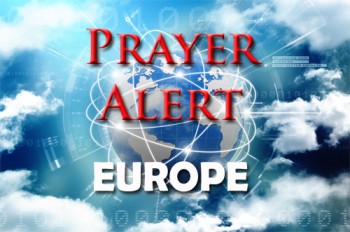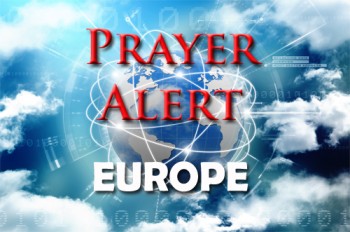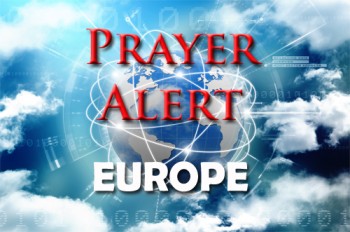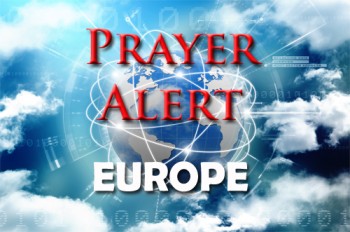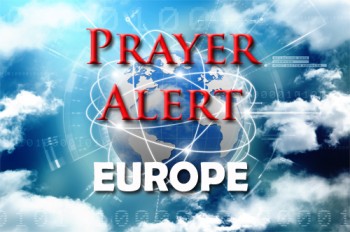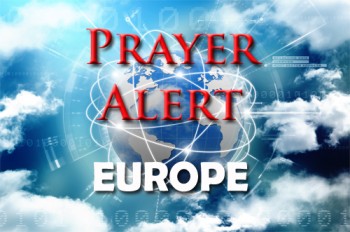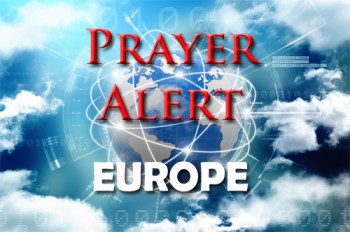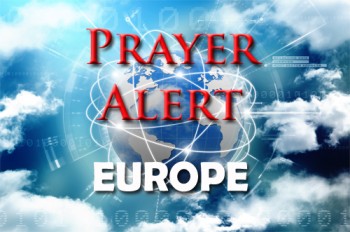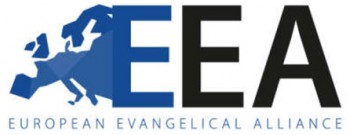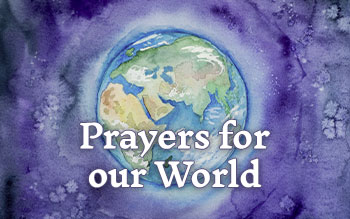Displaying items by tag: Europe
Poland: Just Don't Tell Anyone
A survey showed that Poland's pro-EU opposition has a ten-point lead over the ruling nationalists ahead of European Parliament elections - a sharp turnaround that some analysts linked to a film about sexual abuse scandals in the Catholic Church. The documentary Just Don't Tell Anyone, which shows victims of child abuse confronting priests who had sexually abused them, has shocked Poles. The powerful Catholic Church has close ties with the governing Law and Justice party (PiS). The documentary has been viewed more than 18 million times on YouTube since it was released on 11 May. PiS has responded to public outcry by announcing tougher penalties for child abuse, but it has also stressed that the instances of abuse by priests should not be used as a reason to attack the Catholic Church. PiS sees Catholicism as a key element of Poles' national identity. Some say that the church is too powerful.
Austria: Russian video scandal
On 18 May Austria's vice-chancellor Heinz-Christian Strache resigned after German media published a video that purportedly showed him offering government contracts to a woman posing as the niece of a Russian oligarch, in exchange for media coverage and political funding. The scandal drove Austria’s Chancellor Sebastian Kurz to call for snap elections instead of trying to revive his weakened coalition government. ‘Enough is enough,’ Kurz told reporters, while Strache, who leads Austria's far-right Freedom Party, described the incident as a ‘targeted political assassination.’ The video was reportedly just months before Austria's last election, where Strache's party received 26% of the vote and 51 seats. In the wake of the video, Kurz said the abuse of power, taxes and interference in media affairs were among his concerns. Strache vowed to take legal steps to address the video.
European parliament elections: Brexit Party
73 MEPs will be elected in the UK on 23 May, and the Conservative party potentially faces an angry backlash from voters. Nigel Farage’s new Brexit Party has more support than the two traditional British parties combined. Britain’s education minister Damian Hinds said that the elections were a second referendum that would be difficult for Conservatives. The latest opinion poll gives the Brexit Party 34% of the vote, yet it was only founded in April. Fourteen of UKIP's seventeen MEPs have defected to it. Nigel Farage said there has been a breakdown of trust between people and politicians, as the two main parties have failed to deliver the result of the Brexit referendum. See
Germany: opening to God
Before refugees came, Germans never thought about religion. Germany was a ‘Christian’ country. Lutheran or Catholic was an insignificant part of life. Now that Muslims have come, religion is an issue. Germans are questioning, ‘How am I different from them?’ ‘What do I even believe?’ ‘What does it mean to be a Christian?’ and ‘Who is God?’ Communities are becoming more open now. Even Muslims are becoming disillusioned because of the things being done in the name of Islam, and questioning if they want to be a part of something that does such harm. The Spirit is working in converts to Christianity. Most are authentic heart-transformations, even though some are sceptical and disheartened by occasional fake proclamations of faith. Fake or not, despite the intentions of the heart, God’s Word does not come back void. The gospel is being preached, even though there is still much opposition from sceptical nationals and fearful refugees.
European parliament with anti-European parties
After the Second World War many said, ‘Never again’. For decades extreme nationalism was considered a threat. In 2019 it has re-emerged with European far-right parties forming a new alliance led by US strategist Steve Bannon, wanting to ‘promote’ right-wing populist groups in Europe. Matteo Salvini, Italy’s leader of the extremist League party, has joined ‘The Movement’ and has gathered right-wing Netherlands Party for Freedom, Germany’s AfD, Danish People's Party, the Finns Party and other extremist populist parties to form a new alliance, injecting their rhetoric into the EU; selling themselves as ‘maintaining or protecting their heritage and their people (they warn that refugees, Muslims, empowered women, and the EU bring unwanted change, which is a bad thing). A YouGov survey for voting intentions shows that the European parliament will be significantly different after 25 May with 35% of seats taken by socialists, Greens, the European People’s Party, and other anti-European parties. See
Bulgaria: Pope urges ‘welcome refugees’
Bulgaria’s prime minister welcomed Pope Francis when he visited Bulgaria on 5 May, saying it reflects his interest in the peaceful economic development of the Balkans. Francis’ tour included a visit to a refugee camp in the outskirts of Sofia, where he said, ‘Bulgaria confronts the phenomenon of those crossing its borders in order to flee wars, conflicts or dire poverty in attempts to reach the wealthiest areas of Europe. They want new opportunities in life or simply a safe refuge. To all Bulgarians, familiar with the drama of emigration, I respectfully suggest that you not close your eyes, your hearts, or your hands - in accordance with your best tradition - to those who knock at your door.’ The Orthodox Church rejected the idea of holding joint prayers with the pontiff.
Russia: internet censorship
Reporters Without Borders and nine international human rights NGOs called on Vladimir Putin not to sign the 'sovereign internet' bill into law because it would take Russia across a major threshold in online censorship. The law the Russian parliament approved on 22 April, which Putin is poised to sign, would take Russia closer to the Chinese model of online censorship. It would establish a 'sovereign' internet, independent of the international internet and closely controlled by the Kremlin. Internet service providers would have to direct traffic through a centralised system of devices controlled by Russia, with approved internet exchange points, and to use a national domain name system that would facilitate surveillance and, in the event of unspecified 'security threats’ would allow the authorities to block traffic between Russia and the rest of the World Wide Web partially or fully, and within Russia.
Spain: far-right politics
The Socialists won the recent Spanish election, but far-right party Vox will enter parliament for the first time. Vox opposes multiculturalism, migration, and feminism. Italy's deputy PM from the right-wing League party congratulated ‘our friends in Vox for joining the parliament in Spain’. Its views on immigration and Islam place it in line with far-right and populist parties elsewhere in Europe. With European elections only weeks away, nationalist and far-right parties across Europe are sensing an opportunity for a rise in European nationalism. Italy’s anti-establishment Five Star Movement has common cause with Germany's main opposition party, AfD, the Finns Party, the Danish People's Party (who seize migrants’ property to pay bills), Austria's Freedom Party, France's National Rally, Sweden’s anti-immigration party, and several others, including Nigel Farage’s Brexit party. See
Europe: Praying for the Parliamentary Elections 23-26 May 2019
Christian Responsibility for Europe
Uniting in prayer, hope, reflection and action
Shaping Europe’s future – the European Parliament
The European Parliament can seem remote from daily life but it helps to shape the values and direction of our continent. Through its power to block and amend legislation and to lobby hard for other changes, the European Parliament has huge influence. Between 23rd and 26th May, EU citizens will get the chance to vote and thus collectively choose who will represent them at European level until 2024.
What will the European Union look like in 5 years’ time? What values will European society prioritise? Members of the European Parliament (MEPs) will have a big say over the answers. What challenges will this continent face? MEPs will help choose Europe’s response.
Europe needs prayer
Of course it is always important to pray for politicians (1 Timothy 2: 1-4) and election seasons are especially significant. But, if we step back and look at our continent as a whole, it is clear that Europe is in trouble. So the importance of intercession is huge. Across Europe, fear, division and even anger are common, truth is often getting lost or ignored in the noise. Every nation and the EU institutions themselves are falling short of God’s standards as Evangelicals have historically believed them to be. We have been given good gifts of family, freedom, nation, human rights, security, sex, often relative economic prosperity, etc. but we have turned them into idols as we prioritise them over the Lord or distort them from what he designed them to be. Secularism, meanwhile, makes politics itself an idol and tries to silence other faith-inspired voices. There is also a growing culture of “them versus us” in which many believe that those they disagree with are completely wrong whereas they are completely right. This makes it difficult for people to see good in those who oppose them or to examine their own faults. As a result, wisdom is lost, pride and stubbornness abound.
Hope and responsibility
Individual Christians can feel powerless as they look at these socio-political and economic challenges. We can wonder if there is any point in praying about elections. But, hope returns when we focus our attention on the King of Kings, the one who is in ultimate charge and isworking out His eternal Kingdom purposes no matter what. As we remember that we are called to pray that “His will be done on earth as it is in heaven”, we are motivated to persevere in our intercession. But it also means that we have homework to do – to work to understand what is happening on earth and equally try to understand the will of the Lord. We do this in humility, remembering that we will not fully comprehend until Jesus returns.
Strength in unity
There is particular power and wisdom in praying and reflecting together with other Christians. The diversity of local Church (and indeed Church at national or European levels) means we can choose to understand the lives, problems, gifts and opinions of those who are very different to us. Our identity in Christ gives us a firm foundation for mutual respect, collaboration and the possibility of softening our opinions. We know that, when we pray in humility, repentance and unity for our nations, we can be confident that the Lord listens and will heal (2 Chronicles 7: 14). And when we consider socio-political matters with those who are different to us, it becomes much easier to find a truly biblical perspective on what is important.
A biblical worldview sustains democracy
There is much we can agree on from the Bible. We know that every single human being is made in the image of God and, therefore, has infinite value. So Christians are united in wanting to see European society valuing all, no matter their sex, age, ethnicity, faith or worldview, “economic usefulness”, health or if they are yet to be born etc. As image bearers, every human has the capacity for immense and creative good, so we seek a Europe where there is opportunity for that flourishing contribution from each one. But, since the Fall, each human is capable of unspeakable sinfulness. And so public policy and, indeed, the political system itself must take this into account.
It is this biblical worldview which has provided the foundation for sustainable democracy and free societies.
- Since human beings can do good, they should be able to contribute to the political decision making system and to society.
- Since human beings can do evil, democratic systems should spread power as widely as possible, not allowing any individual or institution to dominate.
- Since every human being has infinite worth, politicians should work for the good of all, including those who did not or could not vote for them.
So let’s be proactive in our praying, voting and influencing to speak up for these core biblical principles and to protect and strengthen the health (in God’s eyes) of our democracy, nations and continent.
Uniting despite differences
As Christians, we should be able to agree on foundational principles of what the Lord would want but there will still be much we continue to disagree on. Since no political party has a monopoly on truth and wisdom, Christians will vote in different ways. But, there is still huge value in praying and discussing together, asking for the Lord’s blessing and mercy, and seeking to understand what is needed for His Kingdom values to be more strongly reflected across our continent.
Therefore, the European Evangelical Alliance urges its members and local churches across the EU to unite in
- non-partisan intercession for our nations and continent,
- biblical reflection about the Lord’s values, listening to other opinions, asking big questions,
- challenging untruth, disrespect and idolatry,
- encouraging people to study political manifestos carefully and to vote.
Politics has its limits
However, no matter how important these elections are, politics becomes an idol when we expect it to solve every issue, give 100% guarantees of security and answer our every need. We look to the King of Kings first, trusting in His sovereignty and ultimate Kingdom purposes. And we also understand the responsibility of citizens to contribute to the common good. Local Church has a particular joyful task to offer the hope of Jesus Christ in word and deed. There is so much anger, fear, loneliness, injustice and hardship around. The Church is doing a vital job in serving communities, reaching out to the most vulnerable, encouraging neighbourliness, building peace, offering hope for today and ultimate hope for eternity. Let’s keep going, whatever happens in political life.
Pray for the European Parliament elections 23-26 May 2019
Christians may vote for different political parties but there is great significance in praying together in humility and unity for our nations and continent.
Here are suggestions for united intercession. We invite people to pray in non-partisan ways
so that all Christians can say AMEN.
Let’s pray for
- the well-being of all candidates and their families during this stressful time,
- peaceful and safe campaigning and voting,
- truth to be sought, seen and heard, valued and accepted,
- opportunities for respectful debate, with a variety of voices being heard,
- growing support for core biblical values, including love, truth, justice, righteousness, forgiveness, integrity, respect, service and generosity,
- the success of politicians who will
- preserve and strengthen democracy and freedom,
- work for the good of all, including the weakest and most vulnerable,
- be a blessing to their nation but also work well with politicians from other nations.
- The next 5 years of the European Union to be a period
- where mutual respect and listening in political debate increase,
- where every Member State of the EU is able to be and to offer its best to the whole and to be humble enough to learn from others,
- where there is greater understanding of the value of every human being,
- where wise and just decisions are made to face the many economic, technological, environmental, social and security challenges Europe faces, and where the weakest are better protected,
- where freedom of religion or belief and of expression are strengthened,
- where decisions are made at the appropriate level – European, national, local,
- where there is a stronger connection and trust between politicians and officials and the citizens of the European Union.
Russia: Religious Clampdown Spreading
MOSCOW - In Verkhnebakansky, a town just outside Novorossiisk on Russia's Black Sea Coast, Baptists gather in a small house with a set of windows in the shape of a Christian cross.
Their presence in the Krasnodar region goes back 110 years, the past 25 of which -- since the Soviet collapse and the opening up of religious expression -- have seen a faith long repressed by authorities flourish once again.
So it was a shock when, on April 7, as some 50 congregants celebrated Annunciation, law enforcement agents stormed in and interrupted the service.
According to presbyter Yevgeny Kokora, the choir temporarily halted its rendition of Jesus Is My Lighthouse while the pastor pleaded with the officers. They wrote up a report and left just as the service was drawing to a close.
The following day, Kokora went with 71-year-old pastor YuryKorniyenko to the prosecutor's office in Novorossiisk, seeking to file an official complaint. They were told the prosecutor wouldn't be taking visitors for the next three weeks. The local branch of Russia's Federal Security Service (FSB) heard the two Baptists out, Kokora told RFE/RL, but made no promises.
On April 9, Korniyenko received a court summons and was subsequently charged with engaging in illegal missionary work. His case will be heard this week, and he faces a hefty fine if convicted.
"This is the first time we've had such troubles," Kokora told RFE/RL in a telephone interview. "I don't understand who needs this, who's playing this card."
While freedom of religion is constitutionally guaranteed in Russia, the relevant legislation names Orthodox Christianity, Islam, Judaism, and Buddhism as the country's four traditional, protected religions. Others with smaller presences in Russia, including denominations like Baptists, have been subjected to increased scrutiny in recent years.
In 2016, Russia introduced a package of laws outlawing missionary work outside officially designated places of worship, part a broader crackdown on minority faiths operating in the country.
The new laws have been cited as necessary measures in the state's fight against extremism and have led to charges against hundreds of religious activists across the country and, in 2017, to an outright ban on Jehovah's Witnesses, a Christian denomination with headquarters in the United States.
Roman Lunkin, a religious expert at the Russian Academy of Sciences, told RFE/RL that the Baptists in the Krasnodar region are falling victim to "not so much an expansion" of the government's campaign against minority religions as "its logical continuation."
The implication, he said, is that the clampdown will spread.
So far, the Baptist church in Russia has kept comparatively under the radar, despite a flock that Lunkin estimates at more than 250,000 people. Its members stand out from those of other minority faiths through their strong "civic stance," Lunkin said -- many are community leaders or members of local government.
But in November, its adherents were shaken by news that a pastor in Tatarstan had been fined 20,000 rubles ($310) for organizing an unsanctioned public gathering: A group of Baptists had assembled that June to watch him baptize their newest member in the Kama River.
Kokora said he believes the campaign against his congregation is a largely local affair, a case of officials trying to curry favor with their superiors. He noted that Novorossiisk has seen several similar cases in recent weeks, but faith groups in other parts of Krasnodar have been largely left alone.
In March, the Pentecostal meeting house in Novorosiisk was torn down after officials declared it an unauthorized construction. Seventh-Day Adventists in the city have been banned from gathering for worship, Kokora said. They now travel to Gelendzhik, 50 kilometers away.
On March 1, law enforcement officers in Novorossiisk detained two Mormons -- Americans KoleBrodowski, 20, and David Gaag, 19 -- on suspicion of violating Russian immigration law. They were released two weeks later and deported to the United States.
The Baptist congregation in Verkhnebakansky has felt pressure from the authorities grow over the past year, according to Kokora. He said they've had weekly calls from officials demanding summaries of the latest sermon delivered, as well as reports on attendance.
On April 21, the deputy head of the Russian Baptist Union, Viktor Ignatenkov, visited Verkhnebakansky to discuss the April 7 incident and the possible legal repercussions for local church members. The meetings "gave everyone a sense of confidence in God's intercession," the church said in a statement on April 23.
Kokora, who spent four years working in the Novorossiisk administration and was a member of the city's civic council, said he is reluctant to try and leverage his official contacts and plans instead to take the legal route by appealing to the Presidential Council for Civil Society and Human Rights in Moscow.
"We have laws, and we have courts. Let's fix this through a legal framework," he said.
That council may be the last hope for groups who feel targeted for their faith.
On December 11, in a meeting with council members, President Vladimir Putin suggested that official policy toward some religions should be liberalized.
"We probably can, and even at some point should, be much more liberal toward representatives of various religious sects," he said.
Putin ordered Supreme Court Justice Vyacheslav Lebedev to oversee the drafting of a general legal framework for adjudicating cases brought against religious groups. The deadline is July 1.
Kokora is among thousands of believers vesting their hopes in the initiative as a chance to reverse what they see as a tightening of the screws on Russia’s minority faiths.
In the meantime, he awaits the court's judgment.
"If this case becomes a precedent, then all our congregations will fall like a house of cards," he said. "The administration's hands will be untied."
Pray for theseefforts of Kokorato succeed -as he challenges the government’soppressive treatment of people due to them practicing their faith.
Pray for the persecuted Christians and their families. May they be richly rewarded for being strong in adversity.
